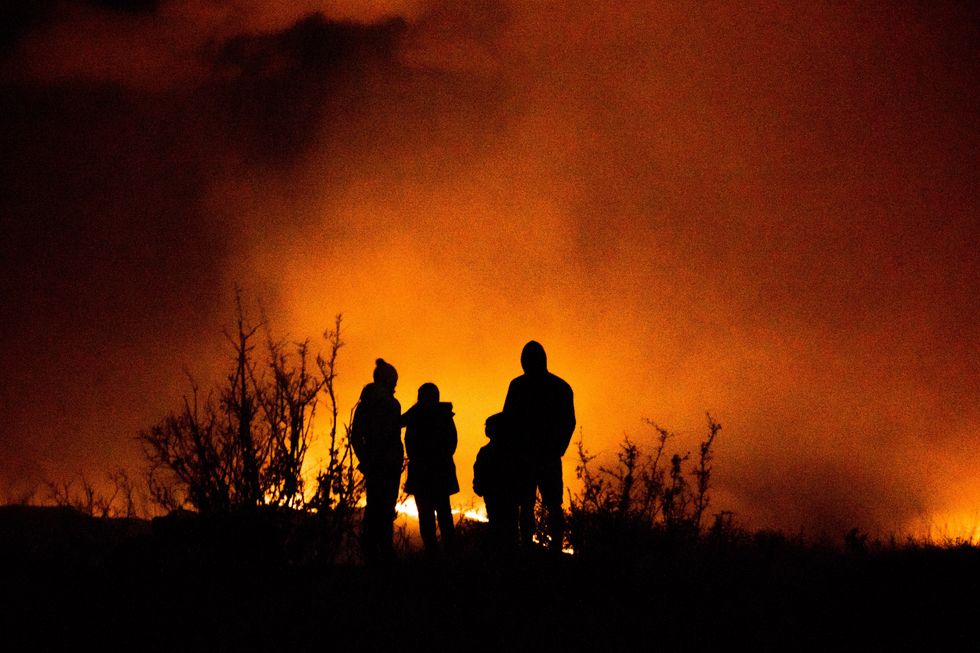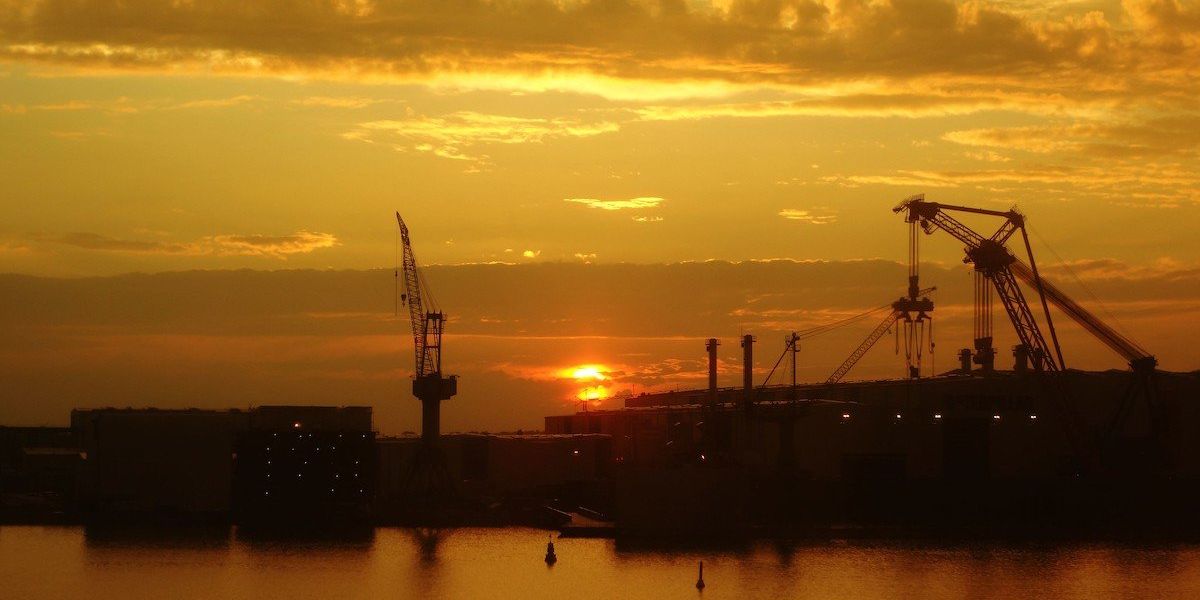
Op-ed: How climate change harms pregnant people and their babies
From extreme heat to pollution, health risks are worsening and growing.
Raging wildfires, monster hurricanes, extreme flooding and sweltering heat waves have destroyed homes and lives. But climate change is harming people in ways that don’t make national headlines, too. People are struggling to access contraception, conceive, carry pregnancies to term and deliver healthy babies because of our changing climate.
Pregnancy has always carried health risks. But climate change has created new risks for pregnant people and their babies and worsened the risks that were already there, creating a dangerous scenario. The American College of Obstetricians and Gynecologists has recognized climate change as an urgent women’s health issue.
How does extreme heat impact pregnancies?
Extreme heat is one of the most harmful climate change outcomes for people, causing more deaths than all other extreme weather events combined. Exposure to extreme heat is particularly harmful for pregnant people and newborn babies and is linked to preterm labor, stillborn births, low birth weight, infant mortality and developmental delays.
The harms are alarming — several studies found that heat exposure increases the risk of preterm birth from 8.6% to 21%. This increase was even higher for pregnant people of color. Preterm labor and low birth weight are dangerous for infants and lead to health problems in adulthood, including diabetes, heart disease, asthma and high blood pressure.
Newborns are especially vulnerable to extreme heat because they have less ability to regulate their body temperature. Heat and humidity have also expanded the range of vector-borne diseases like Zika and Lyme, which are particularly dangerous for pregnant people and their babies.
How does pollution impact pregnancies?

Wildfire smoke increases the chances of preterm birth and low birth weight and causes stress, which may affect fetal development.
Credit: Caleb Cook/Unsplash
In addition to driving extreme weather events, climate change increases pollution in our air, water and food.
Climate change has increased the duration and intensity of the wildfire season, making air pollution worse. Wildfire smoke increases the chances of preterm birth and low birth weight and causes stress, which may affect fetal development.
Pregnant people are particularly at risk from bad air quality because of the changes that take place in the body during pregnancy, including faster breathing rates that can increase blood and plasma volumes.
Related: How toxic wildfire smoke affects pregnant people
Climate-driven extreme weather events like hurricanes and floods have also been linked with poor birth outcomes and poor nutrition and diarrhea. That’s because floods, hurricanes and wildfires can increase the levels of toxics and pollutants in the water and food we consume.
Rising ocean surface temperatures, for example, can increase an animal’s metabolic rate and mercury absorption, increasing mercury in the food chain. When pregnant people consume mercury it leads to a higher risk of fetal developmental delays.
The effects of climate-fueled severe weather events are long lasting. Pregnant women and their babies were affected by Hurricane Katrina even five to seven years after the storm. The long-term effects often include people’s ability to access obstetric care and nursing support, as seen in the aftermath of Hurricane Maria.Mitigating the reproductive harms of climate change
Climate change’s impact on reproductive health is a complex issue but there are ways to begin mitigating its harms today.
One of the most important things we can do is recognize that these reproductive health issues don’t exist in a vacuum. The disproportionate harms experienced by pregnant people and babies are just one example of the harms caused by climate change, which is worsened by our extractive economy.
Capitalism perpetuates climate change and creates disparities in who has access to healthcare and other resources that can help mitigate the problems climate change triggers.
For example, low-income communities and communities of color are more likely to experience extreme heat and less likely to have the resources like air conditioning to keep them cool. When they do have access to air conditioning, they’re more likely to spend a greater percentage of their income on it, leaving less money for other essentials like food and healthcare.
In order to fight climate change, we must also work to build economic systems that don’t rely on resource extraction and endless growth.
Reducing greenhouse gas emissions and banning fossil fuel extraction are critical to stopping climate change. We must also stop the damaging life cycle of plastic, which is produced using fossil fuels and emits dangerous toxics through both manufacturing and disposal.
Reducing meat and dairy production is critical too. Meat and dairy are a major source of methane emissions, a climate pollutant that heats the atmosphere 87 times more than carbon dioxide over a 20-year period.
Climate change is worsened by extreme social and economic disparities. We need tax rebate programs, social welfare policies that support wealth distribution, and universal energy access programs that would allow low-wealth people to access affordable, resilient and renewable energy that does not pollute their air and bans the inhumane practice of shutoffs. Unhindered access to comprehensive, culturally sensitive healthcare is also critical, as is universal access to health insurance.
And the public must be educated about the risks of climate change on pregnancy. State and local governments should include gender empowerment strategies in their climate plans and prioritize reproductive health concerns in emergency response plans.
Our health and the environment are deeply interconnected. A warming planet and worsening outcomes for pregnant people and babies doesn’t have to be our fate.














